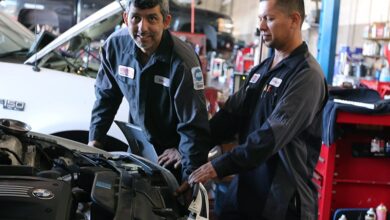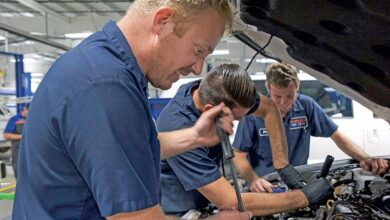
Understanding Your Car’s Maintenance Schedule: A Comprehensive Guide
Keeping up with your car’s maintenance schedule is crucial to ensuring its longevity and optimal performance. By following the manufacturer’s recommended maintenance intervals, you can prevent costly repairs and breakdowns while also maintaining the value of your vehicle. This comprehensive guide will help you understand the importance of adhering to your car’s maintenance schedule and provide you with essential tips for proper maintenance.
Why Is a Maintenance Schedule Important?
A car maintenance schedule is a set of guidelines provided by the manufacturer that outlines the recommended service intervals for various components of your vehicle. Following this schedule helps to keep your car running smoothly, prevents major issues, and ultimately saves you money in the long run. Neglecting routine maintenance can lead to premature wear and tear, decreased fuel efficiency, and even safety hazards on the road.
Key Components of a Maintenance Schedule
- Oil Changes: Regular oil changes are essential to lubricate the engine and prevent friction and overheating.
- Tire Rotations: Rotating your tires regularly helps ensure even wear and extends their lifespan.
- Brake Inspections: Checking your brakes for wear and tear is crucial for your safety on the road.
- Fluid Checks: Monitoring and topping up essential fluids such as coolant, brake fluid, and transmission fluid is vital for your car’s performance.
- Filter Replacements: Regularly changing air filters, oil filters, and fuel filters helps maintain proper engine function.
Tips for Proper Maintenance
Here are some tips to help you stay on top of your car’s maintenance schedule:
- Keep a maintenance log to track service intervals and upcoming maintenance tasks.
- Follow the manufacturer’s recommendations for oil type, viscosity, and change intervals.
- Check your tire pressure regularly and ensure proper alignment and balance.
- Inspect your brakes for signs of wear, such as squeaking or grinding noises.
- Listen for any unusual sounds or vibrations that could indicate a potential issue.
By following these tips and staying proactive with your car’s maintenance schedule, you can enjoy a reliable and safe driving experience for years to come. Remember that preventive maintenance is key to avoiding costly repairs and keeping your car in top condition.
Take care of your vehicle, and it will take care of you on the road!




